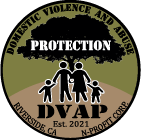Domestic abuse is not always physical. While bruises and scars may be visible to others, psychological abuse often works insidiously, leaving deep emotional wounds that are harder to recognize. Psychological abuse is a form of emotional manipulation where one person exerts power and control over another, diminishing their confidence, independence, and overall well-being. This type of abuse can take many forms and is often overlooked because it doesn’t leave physical evidence, making it harder for survivors and others to identify and address the problem.
Understanding the hidden signs of psychological abuse can empower survivors, their families, and communities to take action before it’s too late. Below, we explore some of the most common and harmful signs of psychological abuse, and how you can recognize and address them.
What Is Psychological Abuse and Why Is It Often Overlooked?
Psychological abuse, also known as emotional or mental abuse, involves a consistent pattern of behaviors that harm a person’s emotional and psychological health. It can include manipulation, control, humiliation, intimidation, and verbal aggression. Unlike physical abuse, psychological abuse usually lacks tangible evidence, making it more challenging to identify and prove. Many survivors may not immediately recognize the abuse, as it often starts subtly and becomes more pervasive over time.
Psychological abuse is also frequently overlooked because societal norms and stigmas around relationships may cause people to dismiss or downplay emotional mistreatment. However, its impact can be just as devastating, resulting in long-term consequences such as anxiety, depression, post-traumatic stress disorder (PTSD), and ongoing emotional instability.
Common Signs of Psychological Abuse
Recognizing the signs of psychological abuse is the first step toward reclaiming control and seeking help. Here are some of the most common indicators that you or someone you know may be experiencing psychological abuse:
Gaslighting
Gaslighting is a form of manipulation where the abuser causes the survivor to question their own memories, perceptions, or reality. For example, the abuser may deny events that occurred, blame the survivor for situations they did not cause, or minimize the survivor’s feelings and concerns. Over time, this tactic can lead to self-doubt and confusion, making it even harder for the survivor to trust their judgment.
Isolation from Loved Ones
Abusers often aim to isolate their victims from family, friends, or social networks. By cutting survivors off from their sources of support, they gain more control and make it harder for survivors to leave the relationship. Warning signs include discouraging contact with loved ones, monitoring communication, or accusing the survivor of being unfaithful or disloyal for maintaining close relationships.
Controlling Behavior
Control is a hallmark of psychological abuse. The abuser might exert dominance by monitoring financial decisions, dictating how the survivor spends their time, or demanding access to personal accounts, such as email or social media. Subtle or overt control tactics create a power imbalance and foster dependency on the abuser.
Constant Criticism and Belittling
Psychological abusers commonly use criticism and belittlement to lower the self-esteem of their victims. This behavior includes shouting insults, nitpicking small mistakes, or undermining the survivor’s achievements and abilities. Over time, consistent negativity erodes the survivor’s sense of self-worth.
Verbal Manipulation
Verbal manipulation involves using words and tone to control or intimidate the survivor. Abusers may mix affection with passive-aggressive comments, use sarcasm to disguise hurtful remarks, or make ultimatums to force compliance. These tactics keep survivors on edge and second-guessing their choices.
How to Recognize Early Warning Signs in Relationships
Identifying psychological abuse early can prevent it from escalating and causing further harm. Pay attention to patterns in communication and behavior, particularly if you:
- Feel consistently anxious or helpless in your relationship.
- Notice ongoing efforts by your partner to control or criticize you.
- Experience a systematic erosion of your self-confidence and self-esteem.
If you suspect psychological abuse, listen to your intuition and seek support from trusted sources—whether it’s close friends, family members, or professional services.
Why Seeking Help Matters
No one should have to endure psychological abuse silently. Seeking help is an essential step toward protection, recovery, and reclaiming your life. Psychological abuse can have severe effects on your mental and emotional health, which is why finding professional resources and support systems is critical.
Resources for Survivors in California, Especially Riverside
If you or someone you know is experiencing psychological abuse, there are resources available in Riverside, California, and beyond. Reach out to local domestic violence shelters, hotlines, or community organizations like Domestic Violence and Abuse Protection, Inc. (DVAP). Services like counseling, legal advocacy, and crisis intervention can provide immediate and long-term relief.
At DVAP, we are here to ensure your safety, help you rebuild your confidence, and find a path toward a healthier future. Remember, you are not alone, and help is just a phone call away.
Are You Experiencing Domestic Violence or Abuse? DVAP Is Here To Help
Domestic Violence and Abuse Protection, Inc. is a non-profit organization committed to protecting the victims of domestic abuse. When restraining orders are not enough, we are there to provide the determined protection you deserve. We are located at 3900 Orange St., Riverside, CA. Call us at (951)-275-8301 (24 hours). Alternatively, you can email us at admin@dvapriverside.org.






